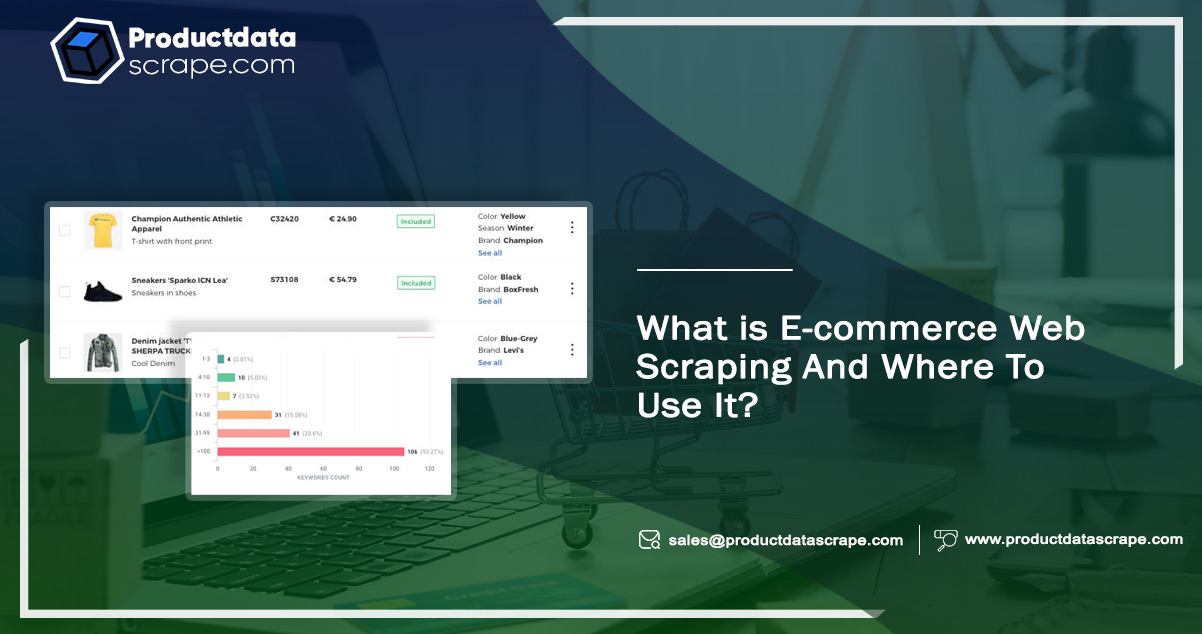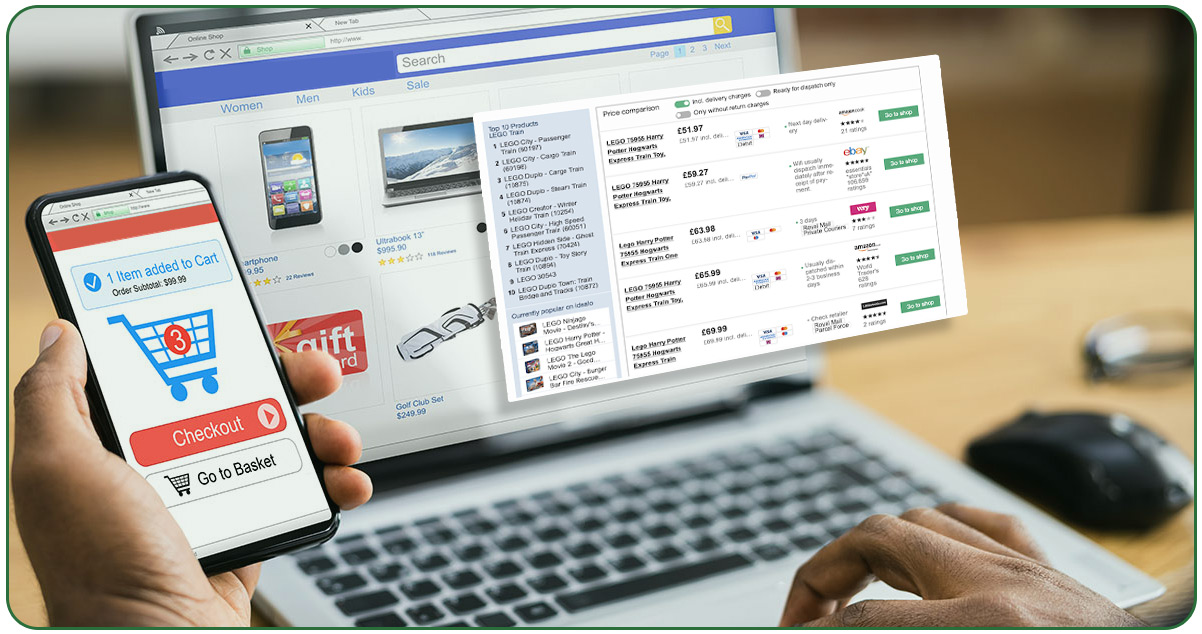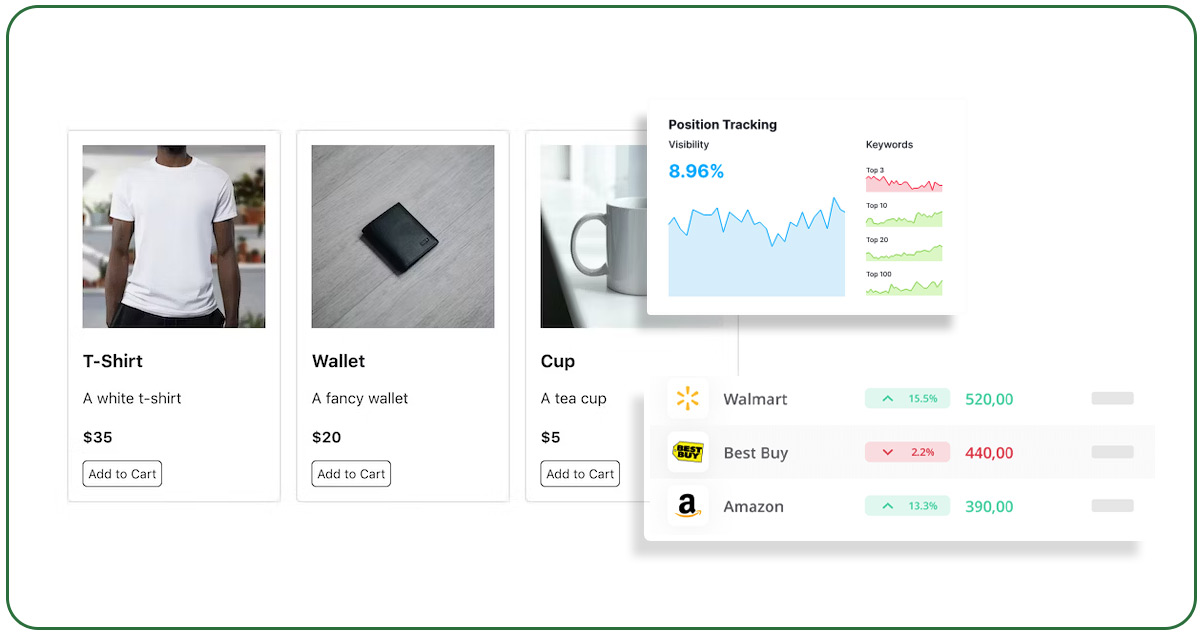
Considering the increasing competition in the e-commerce market, businesses extensively need data for various applications. Manually copying and pasting data from targeted e-commerce platforms is time and resource-consuming. E-commerce web scraping plays a vital role In simplifying these challenges.
In this article, let's explore what e-commerce web scraping is and its application.
What is E-commerce Web Scraping?

It is the process to gather product data from various e-commerce platforms, like product names, descriptions, reviews, prices, offers, and more, using relevant automatic workflows that save time and a workforce of e-commerce businesses.
You can also call it data scraping or web data extraction.
Lead generation, competitive price intelligence, price monitoring, pricing strategy development, inventory management, and market research are critical use cases of e-commerce web data scraping.
Generally, businesses that want to use public data to make value-driven decisions and generate data insights for their e-commerce business use web data extraction.
Unlike the manual process, data scraping, like our e-commerce scraping services that use automation, artificial intelligence, and other technologies to crawl billions of data fields from the available sources, is endless. You might have worked on data extraction by yourself because you copied the data from the source website and pasted it into a structured dataset format. However, giving you large-scale data may take time and may take time.
What is Web Scraping Used For?

Lead Generation
It is one of the most popular use cases of e-commerce scraping. Many businesses use it to compile contact details of potential buyers from various sources. It is best suited for the B2B business segment because these potential buyers share their contact and business information with the public on their social media and digital marketing platforms.
Competitive Price Intelligence
Without studying competition and pricing, an e-commerce business is nothing. Competitive pricing intelligence is also a leading application of data scraping.
Collecting pricing and product data from online stores and transforming it into intelligence is vital for e-commerce businesses that wish to lead the market with better data-driven marketing and pricing decisions.
Here are the merits of extracting pricing data:
- Revenue Optimization
- Dynamic Pricing
- Competitor Monitoring
- MAP & Brand Compliance
Pricing Strategies
Scraping e-commerce product price data helps develop effective pricing strategies that can sustain the long term. It helps businesses attract and retain customers for recurring revenue generation and consistently maintain stability in sales volume.
Price Skimming
E-commerce brands use this strategy for the long term. They charge higher for a unique product initially and then gradually reduce the price of that product in the long term. To develop a price skimming strategy, brands can use web scraping and extract competitor pricing data.
Inventory Management
Web scraping helps to track the stock availability of e-commerce stores and take necessary actions to make products available in the stock so that buyers will not need to buy similar products from competitors.
Counterfeit Detection
You can also use web scraping to observe which seller sells fake products, penalize them, and maintain brand reputation in the industry using counterfeit detection.
Market Research
Before entering the industry or launching a new product, it is necessary to perform market research with customer sentiments, competition level, pricing strategies, etc. E-commerce web scraping gives businesses an edge with insightful data to perform market research, select the best product, and solve the audience's problem at an affordable cost.
Brand Monitoring
Protecting brand reputation on online platforms is significant in the competitive market.
Whether you want to enforce strict product price policies or sell products through digital platforms, you must learn how customers see your brand while buying any product. Using e-commerce web scraping for brand monitoring can help you collect customer sentiment data that you can use to improve your brand reputation in case of any issues to satisfy customers.
Business Automation
Web data extraction also helps you with business automation. It is sometimes challenging to manually compile data from your e-commerce website due to complex website structure and internal systems.
Here, you can use our e-commerce data collection services to gather data seamlessly in a structured format with customized solutions.
MAP Monitoring
MAP, or Minimum Advertised Price monitoring, is an essential pricing policy in the e-commerce industry. Businesses use it to ensure alignment of product prices with the policy.
It is impractical to manually track product prices due to millions of distributors and resellers.
Data scraping plays a significant role here by tracking product prices automatically.
What Are the Other Applications of E-commerce Web Scraping?

We have listed only a few applications of web scraping. There are many other applications based on business requirements. Here is a list of a few more widely used web scraping applications.
- Risk Management
- Competitor Analysis
- SEO Monitoring
- Assortment and Availability
- Data-Driven Marketing
Is E-commerce Web Scraping Legal?
It is not legal if you don't follow the rules, regulations, and community guidelines while using web scraping. Further, if you try to collect private data, it is also not legal. Then, is web scraping legal? Yes, it is legal, but only if you scrape public data available on e-commerce platforms and have a genuine reason for web scraping to get personal data.
Conclusion
E-commerce Web Scraping is gathering publically available product data from e-commerce platforms. It has a wide range of applications based on detailed business requirements. If you want a customized solution with our e-commerce data extraction services, contact Product Data Scrape.



































.webp)






